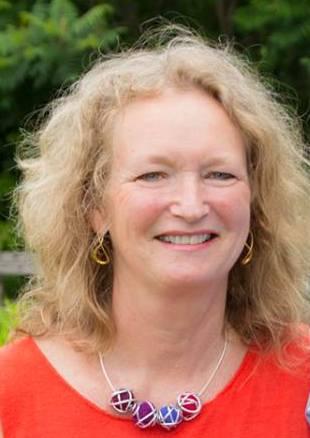Midcoast Leadership Academy’s Robin McIntosh provides insight on leadership
The Penobscot Bay Pilot is launching a new series called “Elements of Leadership” where leaders within the local communities are posed six questions about leadership. The selected leaders are asked to provide insight into leadership and provide advice to the next generation of leaders.
For the first installment of the series, Robin McIntosh of the Midcoast Leadership Academy provided responses, appearing below unedited, to the six leadership questions.
What do you wish you knew about leadership in high school and college?
Leadership wasn’t taught in school when I was there. I think that knowing more about general leadership theories, learning styles, and leadership styles would have been immensely helpful. I was the quiet person in the room growing up, and I don’t think it ever occurred to me that leaders come in all types, sizes, and styles. Growing up in the 70’s, I think my idea of a leader was more along the lines of the “squeaky wheel” theory: Those with the loudest voices were in the lead, although they may well not have been the ones with the best ideas or the most knowledge. We need to give space to and acknowledge the thoughtful leaders who may lead from the middle, or even from behind. We need to seek out the quiet voices.
What are the keys to developing the next generation of leaders?
I think we need to focus on civility, on truly listening, on acknowledging that there are “right” answers on both sides of any discussion, and that some of our most difficult challenges involve what Rush Kidder (founder of The Institute for Global Ethics) called “Right vs Right.” Meeting in the middle to find an answer is difficult work. It is much easier to get up on a soap box and tell everyone what your answer is without really listening to all sides. Listening is key to civility and to effective leadership.
I also think that we need to stress that leaders need to have a broad based knowledge of their communities, no matter how that community is defined. We need to take an ecosystem approach when addressing any issue. I think that all too often, people can become immersed in a specific issue and lose track of how it impacts other vital areas of their larger community.
What steps can the next generation of leaders take to put them on the right path to leadership?
Commit to being a life-long learner. Commit to experiences as they present themselves. I just learned the word “Shoshin” in an art class I’ve been taking. Wikipedia describes this as “a word from Zen Buddhism meaning ‘beginner’s mind.’ It refers to having an attitude of openness, eagerness, and lack of preconceptions.” And to use another concept from the book “Steal Like An Artist,” find someone smarter than you in the room to talk to. And if you find you are the smartest person in the room, find another room. Always be willing to learn.
How important is networking for successful leaders? How can the next generation of leaders best network right now?
I think we overuse the term “networking.” It has become a catchall for grabbing a cup of coffee or having a cocktail at a social event. Building a real network is what is important. That means building real relationships, seeking out people with diverse experiences – it’s so much more than that cup of coffee (although that can certainly be a part of it).
Now that Midcoast Leadership Academy is in its ninth program year, I can see a meaningful, effective network of alumni forming throughout Knox and Waldo County. Not everyone has taken up the challenge, but certainly whenever I’m in a room of people who have gotten together to talk about our community on some level, there are always people from MLA there. From that base, we form networks of networks, and then we can approach issues, knowing that we are listening to many sides, that we are bringing the right people together, that we are looking for the voices that aren’t there. Those are the networks that are valuable to leaders.
As a leader, how do you ensure your vision becomes reality?
I can’t ensure that. The best that I can do is try to ensure that my vision is among those that are being considered. I know that there are always other visions, and hopefully, smarter people in the room! So, building networks, showing up, stepping up (and stepping back), speaking up, continuing to learn and to listen, and being willing to reshape our visions along the way are all part and parcel of building a vital, sustainable community.
What’s the best advice that has been given to you?
These may be somewhat cliché, but are two adages that come to mind: “Think Globally. Act Locally” and “Lean In.” People are frustrated by what is going on out in the world. Bringing it home and doing what we can where we can is how we will be able to affect change and to adapt. And being active in the community takes work. It’s much easier to sit back and watch and tell. It’s much harder to lean in and try to join in affecting solutions.
Reach George Harvey at sports@penbaypilot.com.

























